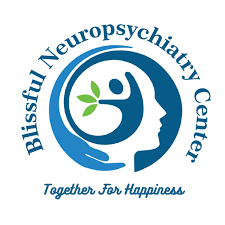Even today in Nepal, when we hear “mental illness,” we often only understand it as a state of insanity (madness). Because of this, even when facing problems, there is a situation where we are afraid to visit a psychiatrist. Individuals may know they have a problem, but out of fear that society, family, and friends will consider them weak, they avoid going to a psychiatrist.
Furthermore, in many cases, individuals themselves lack the awareness of what constitutes a mental health problem. As a result, they either try to endure it by mustering their strength, or they visit doctors other than psychiatrists. This causes the illness to worsen, and only when it reaches a severe stage do we tend to acknowledge it.
The following problems are associated with mental health:
Neurological and Mental Disorders Conditions
- Paralysis and the mental health problems it causes
- Brain cancer (cancer in the head) and mental health problems
- Epilepsy and its associated mental health problems
- Head injuries and mental health problems
- AIDS and mental health problems
- Headaches and the mental health problems caused by them
- Memory loss disorders/problems related to forgetfulness
- Addiction problems
- Alcohol (Jaad, Rakshi – local alcoholic beverages) and its associated mental health problems
- Cigarettes, Marijuana (Ganja) and their associated mental health problems
- Addiction to pills, tablets, and injectable drugs, and their associated mental health problems
- Severe mental health problems and other severe mental health conditions
- Emotional problems / Disorders of emotion
- Depression
- Conditions of excessive happiness (e.g., Mania)
- Problems involving both excessive happiness and excessive sadness (e.g., Bipolar Disorder)
- Anxiety problems / Restlessness/Agitation problems
- Panic disorder / Panic problems
- Generalized anxiety problems (feeling restless/anxious in most situations)
- Social anxiety/phobia
- Fear after an event (e.g., PTSD – Post-Traumatic Stress Disorder)
- Fear due to repetitive thoughts/obsessions (e.g., OCD – Obsessive-Compulsive Disorder)
- Hysteria and its types (e.g., Conversion Disorder, Somatization Disorder)
- Somatoform disorders and their types
- Eating and sleep disorders
- Sexual dysfunctions/problems
- Personality disorders
- Issues related to suicide / Suicidal ideation/attempts
Conclusion
It’s understandable to worry about what others might think if you admit you’re struggling with your feelings, perhaps fearing they’ll misunderstand it as “madness.” However, please know that choosing to speak with a doctor or a mental health professional about these challenges is actually a sign of great strength and self-care, not weakness.
Often, the feelings of deep sadness, constant worry, or overwhelming stress are not just something to “endure”; they can be signs of a health condition that, like any physical illness, can be understood and treated. Reaching out for professional guidance isn’t about giving up; it’s about taking a positive step to prevent these difficulties from growing and to start on a path towards feeling better and reclaiming your well-being.




